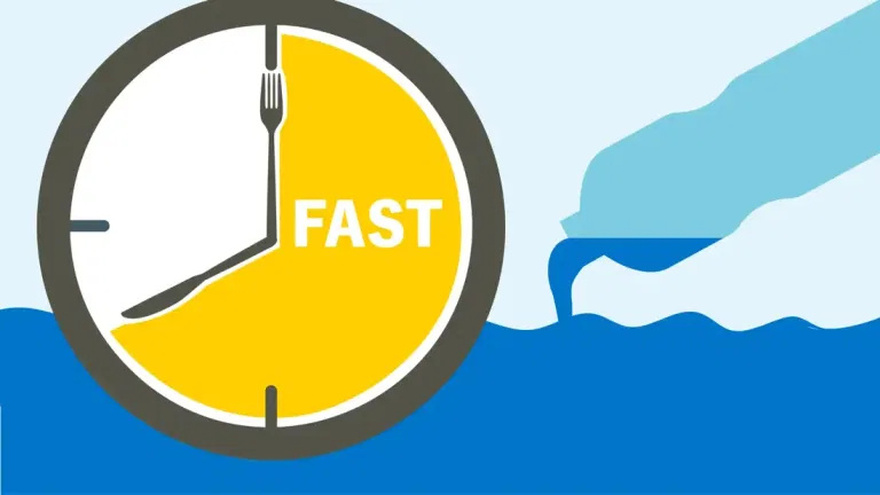Water fasting involves consuming only water for a specific period, usually ranging from 24 hours to several days. While it is known for its potential health benefits—including weight loss, immune system support, and anti-aging properties—it is essential to practice it safely. Water fasting may not be appropriate for everyone, particularly individuals who are underweight, pregnant, or managing certain medical conditions.
What is Water Fasting?
Water fasting is the practice of refraining from all food and beverages except water for a set duration. Many people fast for one to three days, though some extend their fasts to five or even seven days.
Studies indicate that fasting may aid in weight management and overall health. Some individuals modify their fasting experience by adding lemon, cayenne pepper, or ginger to their water for added benefits.

Potential Benefits of Water Fasting
Short-term fasting can enhance metabolism and support cellular regeneration. Research shows that fasting triggers ketogenesis, a metabolic state in which the body burns fat for energy, leading to weight loss. Additionally, fasting has been linked to improved brain function, reduced body fat, and a lower risk of chronic diseases.
One of the most significant advantages of water fasting is autophagy, a natural process in which the body eliminates damaged cells, reducing the risk of conditions like cancer and neurodegenerative diseases. Fasting may also help lower inflammation, contributing to better heart health.
Is Water Fasting Safe?
For most individuals, short-term water fasting is generally safe when practiced correctly. A 2018 study reported minimal risks, with common side effects including fatigue, headaches, and trouble sleeping.
However, extended fasting beyond three days can affect kidney function and should only be undertaken under medical supervision.
Medical professionals advise against water fasting for children, pregnant individuals, people with certain types of diabetes, or those with a history of eating disorders.
Possible Risks and Side Effects
While water fasting has benefits, it also comes with potential drawbacks, such as:
Temporary fatigue, headaches, and digestive discomfort
The possibility of overeating once the fast is broken
Increased risks for individuals with preexisting health conditions
Extended fasting (beyond three days) should be approached with caution and done under medical guidance.

How to Water Fast Properly
To ensure a safe fasting experience, it is recommended to drink 2 to 3 liters of water per day. While shorter fasts (1 to 3 days) are usually safe, longer fasts require professional supervision.
Before fasting:
Gradually reduce food intake to help the body adjust.
Avoid alcohol, caffeine, and high-sugar foods.
Focus on eating nutrient-rich fruits and vegetables leading up to the fast.
After fasting:
Break the fast gradually with juices, bone broth, or soft fruits and vegetables.
Reintroduce solid foods slowly over the next few days to prevent digestive discomfort.
Tips for a Successful Water Fast
Avoid strenuous activities or high-stress situations.
Ease into fasting rather than stopping food intake abruptly.
Do not fast if you are feeling unwell or recovering from an illness.
Stay hydrated and listen to your body’s signals.

Conclusion
Water fasting provides several health benefits, including promoting autophagy and aiding in weight loss. However, it is essential to follow proper guidelines and consider personal health conditions before attempting a fast. Short-term fasting can be beneficial, but prolonged fasting should be undertaken with caution and medical supervision.
Jesse Plemons Once Played Late Philip Seymour Hoffman’s Son Before Taking on His Hunger Games Character for Upcoming Prequel
Brooke Shields Breaks Down in Tears After Husband Chris Henchy Surprises Daughter for Her Birthday
Only Geniuses Can Solve This Math Puzzle in 10 Seconds
Stephen Hawking’s Doomsday Warning is Coming Faster Than We Thought






























